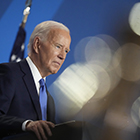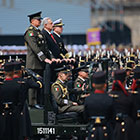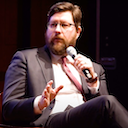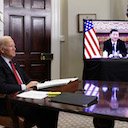
How Democracies Fall Apart
An interview with Adam Przeworski.


An interview with Adam Przeworski.

How do we know when democracy is gone?

An interview with Faye Guenther, president of UFCW Local 3000.

An interview with Dara Lind and Omar Jadwat on immigration policy in the second Trump administration.

Trump’s goal is blood-and-soil nationalism. The only choice is opposition.

It is hard to call people into a political project that is deeply incompatible with their sense of what it means to act morally in the world.

A roundtable on the 2024 election.

Eight years into the fascism debate, few skeptics seem willing to admit that they were wrong.

The DNC showed a party that has successfully metabolized movement energy and insurgent campaigns while distancing itself from demands deemed harmful to its electoral prospects.

Hope will be an essential resource for her campaign. At her first rally, she succeeded in providing it.

Biden claims he is remaining in the race because the threat of Trump is too great. That’s the exact reason he should consider retiring.

The Mexican president has built his durable popularity by combining traditionally left- and right-wing policies and positions.

A left that is ambivalent about liberalism can still seek to engage it.

An interview with Senator Bernie Sanders’ foreign policy advisor Matt Duss.

American rhetoric during the first Cold War relied on an idealized image of U.S. institutions. Today, political elites are more likely to emphasize their vulnerability.